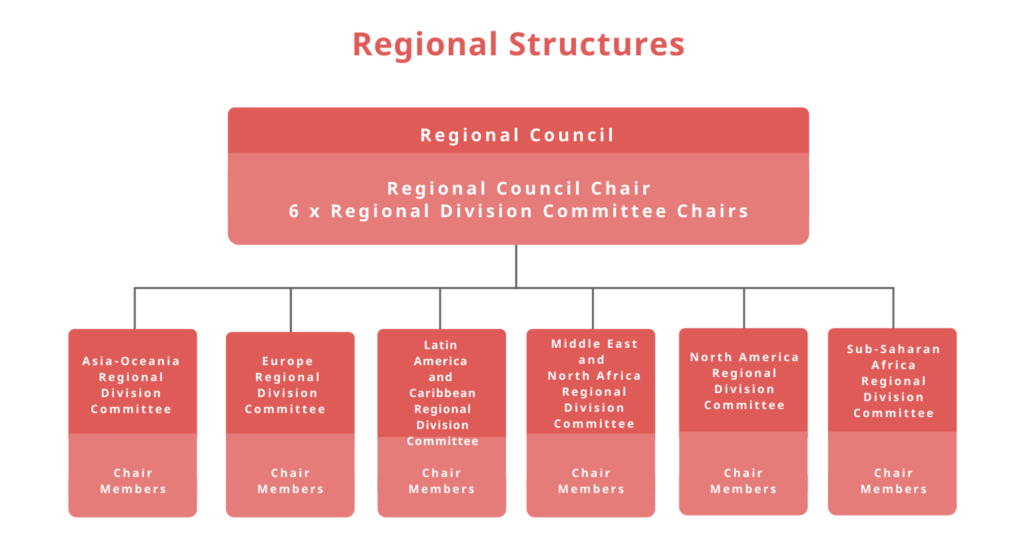Regional structures
Regional Council
The Regional Council coordinates the work of IFLA’s regional units, and provides strong representation of regional priorities across the Federation, as set out in IFLA’s Statutes.
It advises and reports to the Governing Board, raising emerging issues from the national and regional levels, and works to strengthen advocacy for libraries, create opportunities for regional participation, make IFLA more visible globally, and implement IFLA’s Strategy.
In particular, it supports the development and implementation of Regional Division Action Plans, and reviews progress in delivering the regional dimension of IFLA’s Strategy.
The Regional Council is made up of seven members – a Chair and six members, each of whom are also Regional Division Committee Chairs. It meets at least three times a year, once together with the Governing Board. The Regional Council Chair liaises with the Professional Council in order to encourage coordination between the two.

Regional Division Committees
The six Regional Division Committees deliver on the key highlight of the IFLA Global Vision report – the need to be able to adapt IFLA’s action to respond to regional characteristics.
They have a key role in developing action plans that respond to the needs of the library field across their region, in line with IFLA’s overall strategy, and working with other relevant committees and groups. They focus, in particular, on advocacy and outreach.
There are Regional Division Committees for Asia-Oceania, Europe, Latin America and the Caribbean, Middle East and North Africa, North America and Sub-Saharan Africa. Each Regional Division Committee is made up of up to twenty members.
The naming of countries and territories is based on definitions used by United Nations Statistics Division (UNSD), and IFLA’s attribution of country codes on this basis. The allocation into regions is based on a decision of the IFLA Governing Board, reflecting the United Nations Regional Commissions structure. See our IFLA Regions and Countries document for full names and coverage of each region.